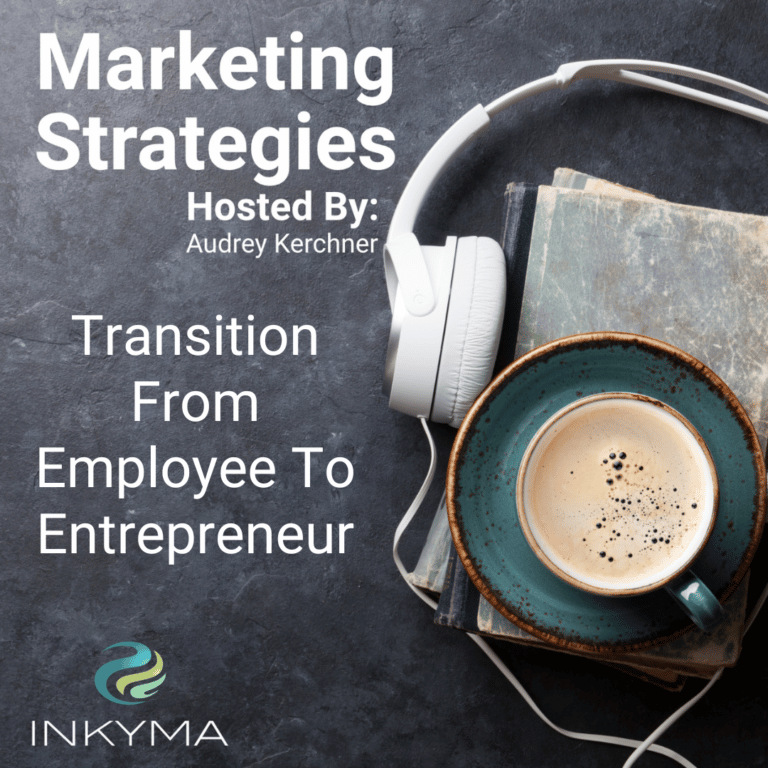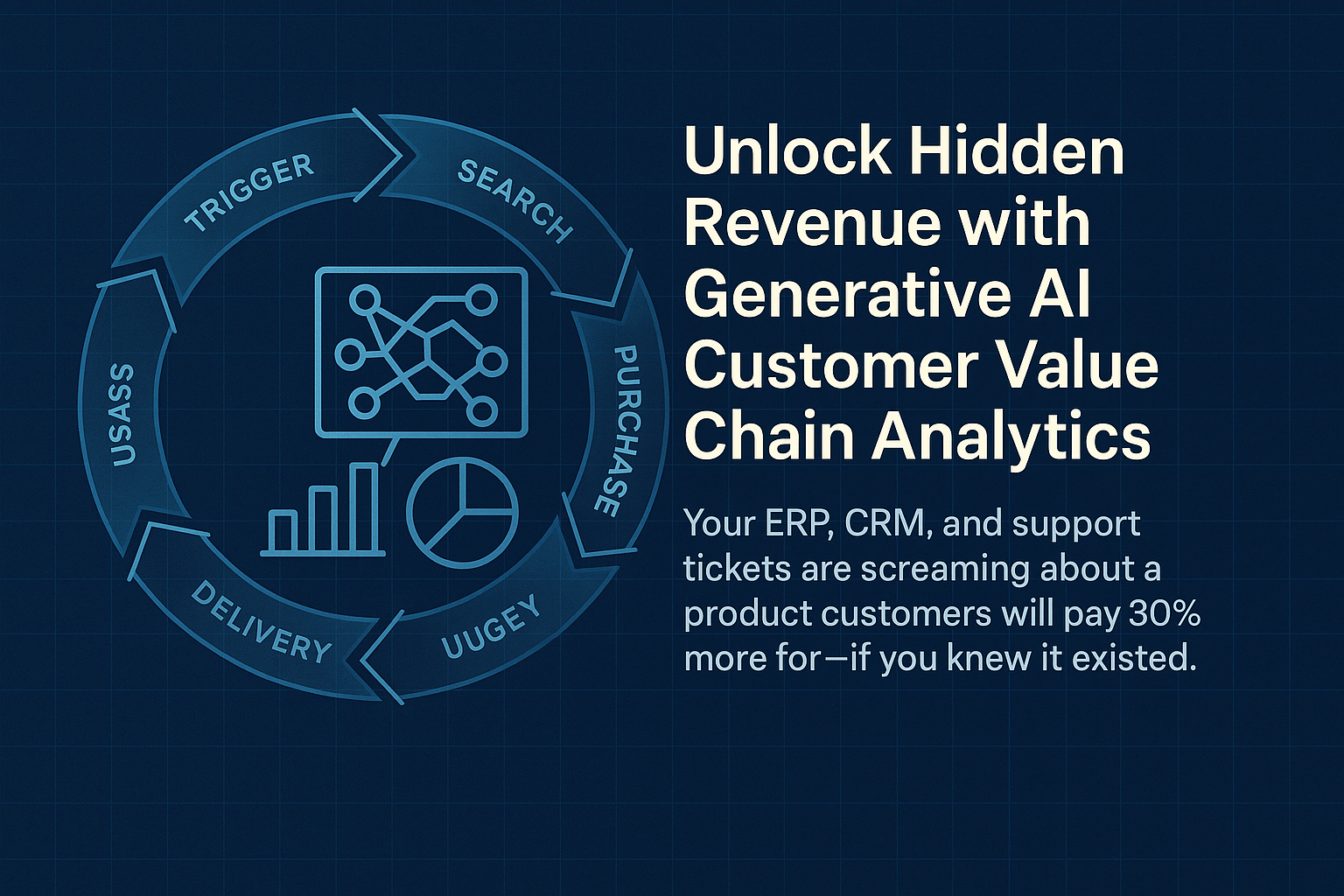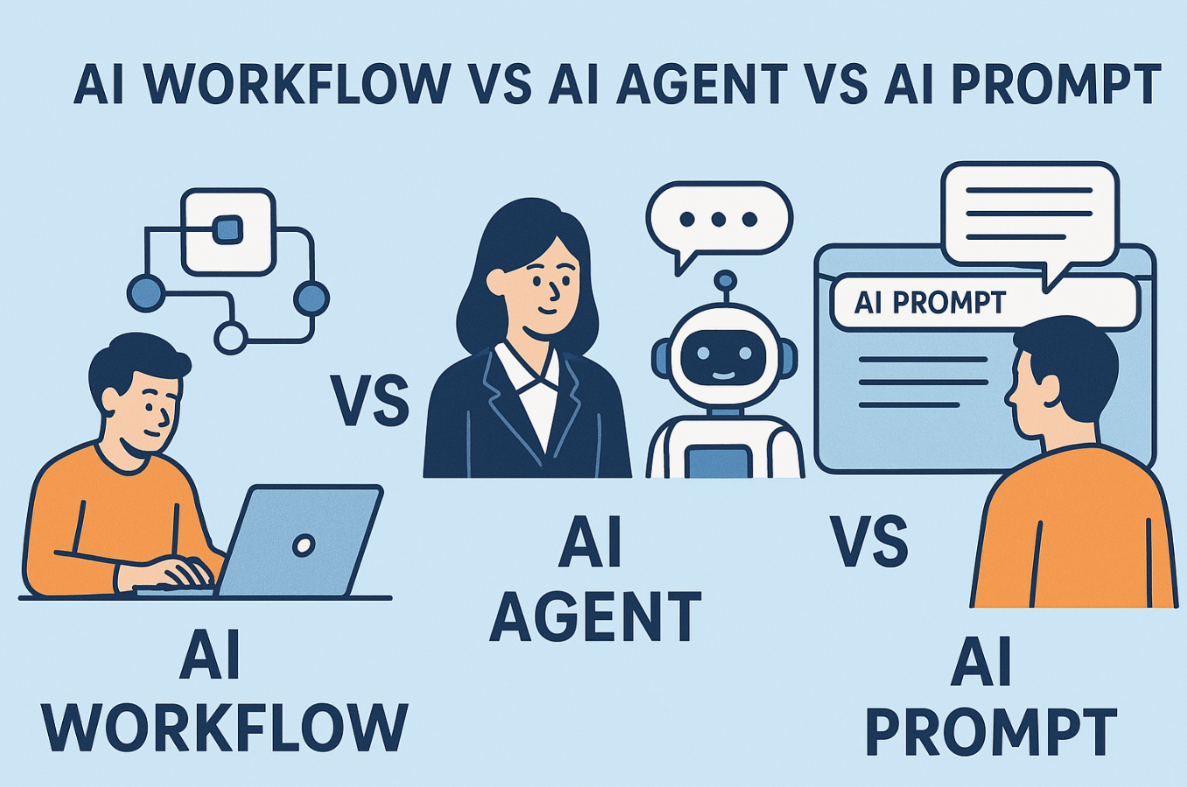Former employees, especially those of larger corporations, struggle with becoming entrepreneurs when they finally decide to transition from employee to entrepreneur. The struggle usually isn’t about money, it’s about mindset.
The mindset of an entrepreneur is very different from an employee and learning how to take your transferable skills and trash the corporate skills that won’t serve you as an Entrepreneur is what this episode is about.
I talk about my journey from employee to entrepreneur as a person who was raised by employees and seen as “going rogue” when I became an entrepreneur.
Links Mentioned In This Episode
Marketing Masterminds – Small Business Marketing Tips for 2022
Episode 1 – Marketing Strategy vs. Tactics
Episode 15 – Networking How To Maximize This Effective Marketing Tactic
Episode 66- Work-Life Boundaries For Business Owners – Interview With Mary Brown
Love our Podcast? Buy us a cup of coffee to help keep creating for you.
Check out our new blog at marketingmasterminds.co free marketing educational content with how-to’s and training coming soon.
What we discussed:
- Transferable Skills
- New Skills
- Skills to part-with
Transition From Employee To Entrepreneur
*Not ready to give this episode a listen or watch just yet? Below is a rough transcript of today’s episode.*
Before I started Inyma 12 years ago, I worked for big international companies as an employee. I was raised by employees. So when I became an entrepreneur, I had no blueprint or anyone to use as a role model. In talking with business owners today, I find that this is the case for a lot of us, many of us come from and we’re raised by employees.
So today I’m good to share my journey with you and a few things that help me along the way to becoming a successful entrepreneur. Okay. So before we start talking about today’s subject, just a couple of housekeeping things. there are a couple books that I recommend that you read, as an employee transitioning to being an entrepreneur, or maybe you’re an entrepreneur already, either way.
I think these books are gonna be helpful. and then there’s some articles and I’m gonna reference a couple of the, podcast episodes for you to go and listen to, in the show notes. There’s also gonna be a rough transcript. So if there’s something specific you’re looking for after you listen, you can go back and find it pretty quickly.
we are partners with many of the products and things that we recommend because we use them, day to day personally, professionally tools that we use with our clients. because we’re partners, we do get a small amount. Every time, someone, signs up or buys something. So clicking through actually helps us a little bit in, being able to keep on creating all of this content that we’re creating for you for free, because I wanna make sure it stays accessible.
So we’re just getting paid in a little different way. All right. So let’s talk about this. Transforming into an entrepreneur, not a marketing topic directly. I know that. so how does this matter to marketing your business? Why is this in marketing strategies? indirectly it does affect marketing.
Understanding how we got to where we are today matters. It matters in your business. It matters in your marketing. It matters how you grow and thrive as a business owner. We’re all in different parts of our journey right now, me, I’m 12 years into this. I’m still figuring stuff out. Some people are at day zero, right?
They just left their company. some are thinking about it and others are somewhere in between where they’re still trying to figure stuff. And this journey, colors, all of your decisions. That’s one of the things that I’ve learned over the years is how I think about things, how I look at them, how I react with them, it matters.
It makes a difference in this decision making process. And so how you, make these decisions in your, business, including your marketing decisions matters. because of your journey. your beliefs may hold you. On using support services, like marketing for your business, right? You may take way too long to outsource something, meaning you should have hired that social media manager a year before you did right.
Would’ve saved yourself. A lot of grief might have actually picked up a couple extra clients along the way, or maybe a writer or a bookkeeper, right? Getting stuff off of your plate or implementing that automation. If you had done it a year before, think of how much further along you’d be. Also how we got here and where we are on our journey affects how you see people.
An example is, you know, employees see service partners differently than entrepreneurs. See. Service partners. I’m gonna talk more about this, but you could actually be missing out on a great support partner in collaborating with someone because you’re treating that service partner like a vendor and yeah, I’m using air quotes cuz you know, being treated like a vendor is not a great thing.
and a lot of us successful service partners out there. We don’t like being treated like vendors. So we walk. And then my selfish reason for, talking about this topic and the context of marketing is yeah, I own a marketing agency. What I want is for you to become a successful business owner who grows so much that you decide you’re gonna outsource your marketing, and you’re gonna gimme a call.
Someday in the future, maybe I play the long game, so yeah, I hope this helps you, so that it can help you grow your business, grow your marketing, and maybe we become partners who knows. If you listen to episode one, I give a lot of detail about my background. so go take a listen to that.
I spent 15 years in the. Corporate world managing budgets. I spent time at a big fortune 500 pharmaceutical company and a New York city agency. so I worked with big teams, small teams, horridly created teams, and then budgets in excess of millions of dollars in negotiating contracts in the millions of dollars as well.
So some of my skills from that time were transferable, to me being an entrepreneur and some of them. We’re really not. so that’s what I’m gonna talk to you about now is I’m gonna talk to you about, the transferable skills that I used that helped me early on to stabilize, new skills that I learned along the way to help me grow and then skills that I trashed in order to make me a better entrepreneur, and a better, service partner to my clients.
So let’s talk about the transferable skills. First thing, this was kind of like my Whoopie, my little blanket, my little Teddy bear was the time management and organization skills in working in really big companies like that. You live and die by your calendar, your email and your contact list. used to be on my Blackberry now it’s on my iPhone, that’s you know how far back this goes, but one of the first things I did when I opened my doors was. I set up a Gmail account. I organized my calendar. I made sure all my contacts, both old and new were sitting in there. So I had everything all in one place because I had to give up my corporate Blackberry. And by that point I had my own cell phone anyway. and my task list, right? Like those were things that I knew that if I stayed organized, I’d be. And then the other thing was taking notes, right? I used to take lots of notes during meetings. I never wanted to miss anything. I always wanted to know what I had to follow up with.
So that system of taking notes, creating tasks from those scheduling appointments and sending emails from those, served me well then, and it serves me well now. so I actually have notebooks for every single client and then I have it for my own company and any big project that I have, initiated for myself.
So if you have great time management and organization skills that you learn from being an employee, keep. The next thing is professionalism in the corporate world. They teach you about professionalism in their world and how it helps you succeed and advance. So if you’re looking to get promoted, if you wanna become a vice president or part of the C-suite, there’s a certain level of professionalism that you have to keep.
And I boil. Down into looking the part when you’re meeting clients or people, Looking the part for what you’re doing and to equate this back to marketing, it’s part of your brand. I remember. So I always thought professionalism is okay. I have to dress really well. I have to look really neat and tidy.
Of course, you always gotta look neat and tidy, but how you dress depends on what you’re doing and who you’re meeting with. I remember one of my early clients, he was a trade. And he was a master carpenter and he created the most gorgeous cabinets on the planet. His work was beautiful. The first time I met him, I showed up in something very suit.
Like I thought I was business casual, but it was way too, overdressed in heels. we were standing in the middle of his workshop that was covered in saw dust, which it should have been. Cuz this is what he does. But the next time I met with. Jeans sneakers, scaled it way down, still looked put together.
and we were both more comfortable for it. So make sure you know how you’re supposed to look for your brand. The trade guys are gonna dress differently than your bankers. Pretty much. expecting to see them in a three-piece suit. that’s kind. coming down a little bit.
Sometimes they can be business casual, but they’re never gonna be in the collared church with the name of their company on their lapel so that, like the trade guys are. So when we answer the door, we know exactly who they are. The next part of professionalism is showing your competency. In your subject.
we as entrepreneurs and business owners, we get into what we do, not really for the money. The money is good, but we get into it because it’s, it’s a skill that we Excel at and that. we enjoy, I don’t think people will really Excel at something that they don’t enjoy or at least have, some level of happiness with it.
So showing that is totally okay. And in the corporate world, you had to, you had to teach your own horn a little bit, if you were gonna make your way up through. And I think pulling that through, showing your competency, showing how you are different from. Your competitors or someone, that has had a bad experience with someone in your industry in the past is hugely important.
That’s part of your professionalism. And this next one has always worked well. It served me early in my career and it serves me today. I think it’s okay to say, I don’t know, but I’m gonna find out it’s okay to not know something. and then the second part of that is key. You’re gonna find out follow up, right?
Make sure you know, and you get back to the person which leads me to my next one, which is follow through is everything. In fact, I think follow through as an employee, it makes or breaks your career. And as an entrepreneur, it makes or breaks your company. So if you say you’re going to call text, email, attend something, anything.
Do it, and if you can’t do it or you do it wrong own that mistake, I made a mistake. Here’s how I’m gonna fix it. And then you follow through on that. Those two things will get you through every single situation in your business life. and it serves you well, it gets you promoted if you’re an employee and it gets you clients and it gets you a really great reputation.
If you’re a business owner, that’s what I’ve found over the last 12 years. and then the last thing in the transferable skills is having a process for any of you that have worked for large corporations. They spend millions of dollars a year. Consultation in software, in planning, in creation of processes, because they know there’s a return on that investment.
If they can create a process that gets things done better, quicker, faster. it’s gonna save them and make them more money in the long run. So they do that at big scale. But what I see as an entrepreneur and a business owner is we can do this at small scale and still see the same percentage return on the investment.
And the two places that I think you have to start with first. and foremost, from a growth perspective for your company, right? increasing that upper line is a lead generation process and an onboarding new client process. And where this comes in handy is if you’re a solo entrepreneur, meaning it’s just you, yourself and your dog.
or if you’ve got a couple of employees, you need these processes in place for when you get an influx of business or life has gone really crazy. And your eye focus changes a little bit from your business. A process will make all of that easier. Meaning if you get 10 people that say, oh, I wanna work with you.
I wanna do these things. A lead generation process will be like, yep. I know what step one is. I know what step two is. And you know where everybody in the process is. And if it’s a process you’ve done for a long time, it breaks you comfort because you’re like, yeah, I know what to do. Next. I do a, I do B, then I do C and if they don’t sign okay, if they do, then I flip them into my onboard.
Process and we move along there. If it’s you and some employees or contractors, all of you are speaking the same language. This person were onboarding. Here’s your step one, two and three. You don’t even have to tell ’em what it is. They just know they just go and do it. It’s like magic, right? That’s what a good process brings, which all other kinds of process you can implement, but I’m gonna stick with these two to start with and hopefully you would get inspired by them.
so now I’m gonna move on to talking about the new skills that I learned, after becoming an entrepreneur, in those, some of ’em I learned right away and, others, they took me a really, really long time to learn. some might have been from the last couple of years. So the first one is, treating by business.
Like it’s a business and not like it’s a side hustle. I think New entrepreneurs that our employees have this misconception that, you can build a business a hundred percent on the side and you can’t right. It’s a lot of work and you gotta give it a lot of time. So if you’re working as an employee, and you’re trying to build a business to move into, guess what? You’re gonna have two full-time businesses. You don’t have a business on a side hustle. If you’re thinking of it as a side hustle, then you have a hobby that you’re kind of doing when you feel like it. And that doesn’t work out when you start treating it like a business, amazing things happen learning to speak to entrepreneurs. . So when I first came out, I, I did corporate speak. I did employee speak and I, I, wasn’t getting a really great reception from people. until I started talking to them, like we were in this together and we were being partners, meaning if I was like, Hey, I’m gonna build you a website and we’re in this together.
And I got your back and don’t worry versus no I’m gonna do this, this and this. And, you know, I went through a task list with. entrepreneurs, don’t talk that way. They wanna know that you’re invested in this with them. so if, even if you’re not a B2B company, like I am, if you’re B2C, I think if you talk to your customers that way, they’re really gonna engage, I’m with you on this, We’re gonna do this together. I’m gonna guide you. And that’s what being a partner really is. then the next one, took me a little while, but man, once I got this down, I was so fired up. It wasn’t that I didn’t wanna do it is I was afraid to do it. So it’s learning to say no.
And firing clients that really just didn’t work for my business. So when I worked at the agency, a client came in, gave us their money. We had to work with them. I couldn’t walk up to my boss or, any of the senior management or the partners and say, no, this guy, they, he doesn’t know what he’s doing.
That they, the company’s not viable. We shouldn’t market their business. Now we had to take ’em and do the very best we could. And internally we could all acknowledge that. Yeah, they weren’t a good fit for us, but we did it. So there was no saying no, We have to get this out by this time you’re doing it right?
Yes. You, it was figuring stuff out. So I really wanted to implement this very early on, but it was very scary cuz I was afraid if I said no or I let a client go that I would never get that revenue back. And it was never the case. Anytime I let a bad client go or I said no to something that wasn’t right for me.
I got all the good stuff. 10.
The next thing I learned was that even though I am a marketing agency and I can and do market other companies extremely well, that doesn’t mean I can do it for myself. Sometimes you’ve gotta get outta your own head and you have to have a little bit more objectivity when you’re putting together marketing plans.
And so I actually got help to market my business. I made sure that I outsourced the writing, even though I can write, I outsourced the design, even though I can design and I bounced the strategy off of external people that they could tell me it was crap. And there was no ramification. And it helped me so, so much.
so whatever you do for your business, don’t try to do it yourself. or be okay with the fact that you don’t wanna do it yourself. You do it all day for someone else. You don’t need to do it for yourself. This next one is huge. And I was fortunate enough to be so burned out when I started my company that I had to do this, otherwise I wasn’t gonna survive.
Period, set boundaries around my time and my team’s time. We recorded episode 66 with Mary Brown. She is a boundaries coach. And we talked a lot about this, about setting work life boundaries in the corporate world. I had no boundaries, They burned me to a crisp and when I left, I just didn’t have the time or the energy to continue that.
So in starting my business, I had to set boundaries. Otherwise I really wasn’t gonna survive. The next one is, is, setting up an environment for my team. So they wanted to work with me and didn’t feel like they had to work for me. It’s a mindset change. It’s a different thing. I kept thinking about what’s in it for them.
Why do they wanna work on this project? I’d have a branding project. And does this graphic designer wanna work on this branding project? Do they wanna create the logo? And it was almost like I was selling to them. Hey, I got this great project, good client. It’s gonna be fun. It’s gonna be all these great things.
Do you want it? So I would actually sell to my team. And even to this day, I’ve got folks that have been with me the last five or six years. Every time I give ’em a new project, I sell it. I want ’em to feel like they wanna work with me, and not, just for the financial reasons.
The next skill is I actually got a business coach. A few years in things got stagnant. I couldn’t get outta my own way mentally. And then I started working with a business coach and things just opened up because I started thinking about things differently. I was actually stuck in that employee mindset.
for a very long time with other different things. And some of the things that I’ve included on this list, and the ones I’m gonna share with you about trashing, that business coach, gosh, he was worth his weight and gold. I still love him to death. and then the next time I feel like I plateaued, I’m gonna grab myself another one and work really hard to get past.
this next one, took me a long time, work enough hours to get the work done and know more. That was a new skill I learned in the corporate world. As an employee, you have to kind of look busy all the time. and you gotta fill your eight hour days, right? You can’t just say, okay, I’m done at one o’clock I’m gonna go home.
That doesn’t happen. Cuz if you’re not sitting in that seat and they can’t see you, they think they’re not getting their money’s worth. but as an entrepreneur, You don’t have to do that. You may have to work longer days, but then other days you get to work shorter days. Other times there might be a great concert coming up on a Wednesday and you just wanna be able to go and experience that.
And as long as the work gets done, it doesn’t matter when. So work enough hours to get the work done and know more. This next one is huge learning how to network well, and effectively, this is the one that helped me find entrepreneurs that I could use as role models. I grew up. Surrounded by employees.
I didn’t know, business owners growing up. Nobody I knew knew the business owners. The only time I saw a business owner was when he was standing on the other side of the counter at the convenience store. so finding other entrepreneurs to talk, to, to learn from, to see how they did, really helped me a lot.
I did a whole episode on networking and doing it effectively. And it’s not just about lead generation and marketing and awareness. It’s actually about serving yourself too. So definitely check that episode out in the show notes. so here are the skills that I had as an employee, and that I have trashed as an entrepreneur, and getting rid of things, cleaning house is very cathartic.
and so this list, hopefully, maybe some things will resonate with you and you’ll be like, yeah, I’m gonna get rid of that too. that’s what I’m hoping. So here’s the first one. I stopped being afraid of losing leads and losing clients kind of talked about that a little bit, about being afraid to fire clients, but sometimes clients that you wanna keep they leave.
And what that really means is we lose their revenue. but it always gets replaced right. There. Wasn’t something that was working for them, for you, for something there’s a reason why they left. Sometimes you know what that is. Sometimes you don’t, or you lose a big project and you get a little disgruntled because you knew what that could have meant for you, but it’s okay.
Because as those doors close, if you keep looking new ones open and I always found that something filled it, that was, I felt better than what was. Another skill that I trashed was picking up the phone when it rings. Now, for me, this is a personal one. I know this isn’t gonna work for everybody, but one of my pet peeves and this is because we have a highly creative process, is that we gotta read a lot.
We have to look at stuff a lot. We have to form thoughts, strategy. And so a ringing phone is a huge distrac. Sometimes it’s a telemarketer. Sometimes it’s a client. Sometimes it’s a lead me. I don’t really care who it is. I don’t wanna break my flow. And so I made it okay. For me not to pick up the phone, I’ve set my business up where if a client needs me.
They know exactly when they’re gonna talk to me next. And if they do feel compelled to send me a,a voice message, they know all will get back to them. But if I can pick up, I will, but if I’m in the middle of something, I’m not gonna do it. I’m not gonna pick it up. And that’s right. For me, that’s not right for every entrepreneur.
Right. There’s some folks that need to pick up their [00:20:00] phone. That’s how their industry works, but mine doesn’t. so figure out what works for you in your industry and be okay with, not following the norm. Just because someone else does that right along those same veins is answering emails and texts outside of my work hours.
This is part of that boundaries discussion, and things that Mary Brown does talk about as a boundary coach. If you set work hours, don’t do stuff outside of work hours. I know easier said than done. It took me a while to, there are even times where a text will come in late and I’ll look at it.
And then I have to really bring in the willpower to put the phone down and not answer it right then and there. but again, it’s creating and reinforcing that habit, but it’s good because then you can just go back once you get that habit in place, you feel better and better and better. The next skill I trashed was assuming that my team had to work for me.
I got the dollar. They’re gonna wanna work for me. early on, I treated them this way. along the same lines as the next one, treating my team, like their employees, I’m like, wait a minute, they’re working for me. They gotta do this work. and they gotta do their best job. I was,Relieved at that disillusion very quickly when I wasn’t getting people to stay and do more work with me.
I wasn’t getting really good quality work. And so I changed my thought process and I went to that, what’s in it for them and really made it a valid request to say, Hey, do you wanna work on this with me? and that’s not, employee, employer mentality. So I scrapped that completely and got it way out of the.
Oh, and then the next thing is, allowing clients to treat me like I’m a vendor I’ve, talked to and actually signed a few clients that were old school, deep ingrained employees at the higher echelons of their business. And they treated. All of their partners like vendors, meaning I’m paying you, you’re gonna do whatever I want you to do.
And those relationships never worked out for me. And now I actually look out for people like that and I don’t even take them on as clients because I don’t wanna be treated like a vendor. I treat everybody else. Like they’re my partners, my networking folks. My team. And I want my clients to treat me like, I’m their partner because I’m treating them like, I’m their partner.
And so that whole vendor concept in that, the almighty dollar is what gets people to jump. Just doesn’t serve me. And I don’t think it serves anybody well, I don’t even think it serves corporations well, they gotta get that figured out. The next thing I dished was having long meetings, wherever possible.
Sometimes a meeting has to go long I’m talking. And the longest is probably for me, like an hour and a half, two hours. But I think it happens maybe once or twice a year. And it’s because we’re going through stuff in very minute detail and it’s working, but in corporate we’d have three hour meetings to kick something off.
And the whole thing probably could have been handled with an email or it could have been handled in a half an hour, but yet we took three hours. Ordered in lunch. and people saw it as like a half day off and, we filled the time with stuff cuz that’s what you do, but it was just very unproductive time and it’s very draining.
So I don’t have long meetings anymore. I schedule what I think is an appropriate amount of time. And then when that time is done, we are done. If we need more time, we schedule it. and then along those same lines for the, that corporate mentality that I ditched is doing busy work, thinking that it was productive, right.
in the corporate world, you have to fill those 40 hours. You have to be there and you have to look like you’re doing something, even if there’s really nothing to do. If what you’re doing is just waiting for something to happen. Or maybe needing to think about something, but you have to look busy.
You have to look like you’re doing something. You gotta go to a meeting, you gotta write an email, you’ve gotta produce something. And that’s just not the case. You don’t have to do busy work. And we as entrepreneurs, anybody that’s been doing this a while is that can kill your business because you gotta do the things that help you meet your goals and objectives to grow your business and nothing else.
And then the last thing that I got rid of was that whole mentality. And even, the client’s mentality that comes at me sometimes that everything has to be done right now and as fast as possible because it’s super urgent. It’s not, it needs to be planned. It needs to be executed against the plan and you have to deal with things along the way.
But none of that means right now, or as fast as possible, actually sometimes the better way to do things is to take it a little bit slower because you actually wind up, getting a better work product and it gets done faster. Cuz you don’t have to redo things cuz you were going too fast. so slowing things down, thinking through things.
Incorporating think time into your process, downtime into the process, is really helpful. So hopefully some of these, transferable skills, new skills, trashed skills have resonated with you. And you’re like, yeah, I need to learn that. Unlearn that and keep doing more of this. so let’s talk about taking some next steps so that you can get to that point.
cuz if you do it with one little thing, you’re gonna be so surprised at how much is gonna change for you and your business. And that’s gonna encourage you to want to do more. So look at your skill sets both past and future. Maybe there are some, you were like, oh, this isn’t gonna work. Revisit it. It might work.
Look at those and decide what you wanna keep. And what you wanna trash. There may be things that, as an entrepreneur you’ve been doing for years, because you thought they were right to do because they worked when you were an employee, they might not be working. They might actually be holding you back as an entrepreneur and a business owner.
So take a really deep look at it. then the next thing I want you to do is look at where your skill gaps are. Are there things that, you think, oh, I’d like to try this or do that, or I need to be doing this, or I need to do that this way. get some education around it and then ask yourself the question.
Do I wanna educate myself and do it myself, or do I wanna outsource it and hire a professional who is an expert in it themselves? sometimes that’s a better track to take because you’re busy doing what your primary business does and you don’t have time for the other stuff, but you do need to make.
A plan to work on your business. That’s really what a lot of this stuff is, is it’s working on your business, working on you. And this actually includes your marketing. I’m rounding the subject back now folks, you know, marketing is such an integral part of growing your business and your mindset and your skills can only take you so far in generating that awareness and generating that growth.
you may need expert support. Or more and more education, a lot more education if you’re gonna market your business. So that’s the last one plan, and work on your business, right? Don’t just work in your business. many of us have heard this now you need to live it. So here’s my final thoughts for you on this topic, being an entre.
It’s a marathon, not a sprint. I know we’re all very passionate about what we do and passionate about the clients that we want to serve. And I’ve heard a lot of people’s stories about going from employee to entrepreneur. I’ve heard entrepreneurs burning themselves out, closing their business, going back to being an employee, cuz they think it’s easier and it becomes just this vicious.
that’s why it’s a marathon. so you’ve got to grow and change with your business. You’ve gotta, make sure you’re using the right skill sets appropriately. And so what I think is that if a lot of this feels a little too overwhelming to you, it’s like, how am I gonna know what to trash? How do I know what the new ones are?
How do I know what to keep that’s when you need to get yourself a business coach, that’s the person that you’re gonna say. Stuff too. And they’re gonna come back with you with an objective opinion and give you thoughts and ideas. They’re sounding boards. and they’re gonna call you on your crap, right?
If you say something that just doesn’t really resonate with what you’re trying to achieve, they’re gonna say no, that’s not part of your plan. Let’s rethink that piece. So get a business coach, so that you can do all of these things, get your mind, right. And appreciate the journey that you’ve been on, regardless of how you got to where you are.
here at Inma. We love to give back to the business community and every day we’re adding more and more stuff to give back, so that you can be successful in what you do. You can do a 45 minute consultation with me. You can ask me questions about the journey. How did I trash those skills? I will be more than happy to talk to you about that.
Or if you need to talk. Getting a brand new logo. I can help you with that too. Go to the website. inma.com. I N K yma.com. And in the upper right hand corner, you can schedule a time with me. we have a contact form. Maybe you just got a comment or a question or a thought or idea about another episode. I love to hear those.
and we respond to everything. We have marketing masterminds, our new blog that helps you DIY until you can get a marketing agency, we just want you to DIY the right way and using the right tools. So we share all of our tools with you. We share our processes, our tips, our tricks, in article format, in training format.
And then in quick snippet video. So I hope you found today’s episode helpful, inspiring if it did share it with other business owners, share it with other entrepreneurs, share it with employees who want to be entrepreneurs, if we help each other grow and thrive, this small business community that we’re in is just gonna get bigger and better and help serve the rest of the country.
Thanks so much for listening and have a great day.












